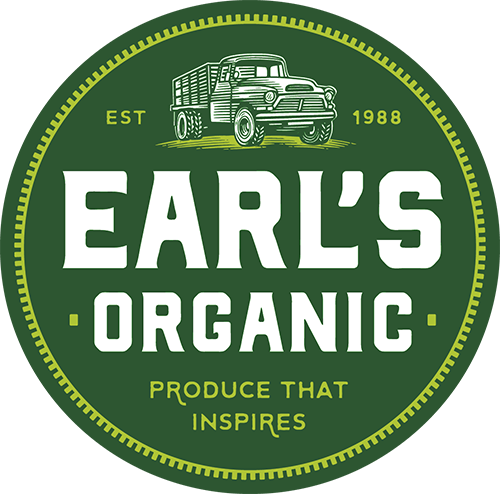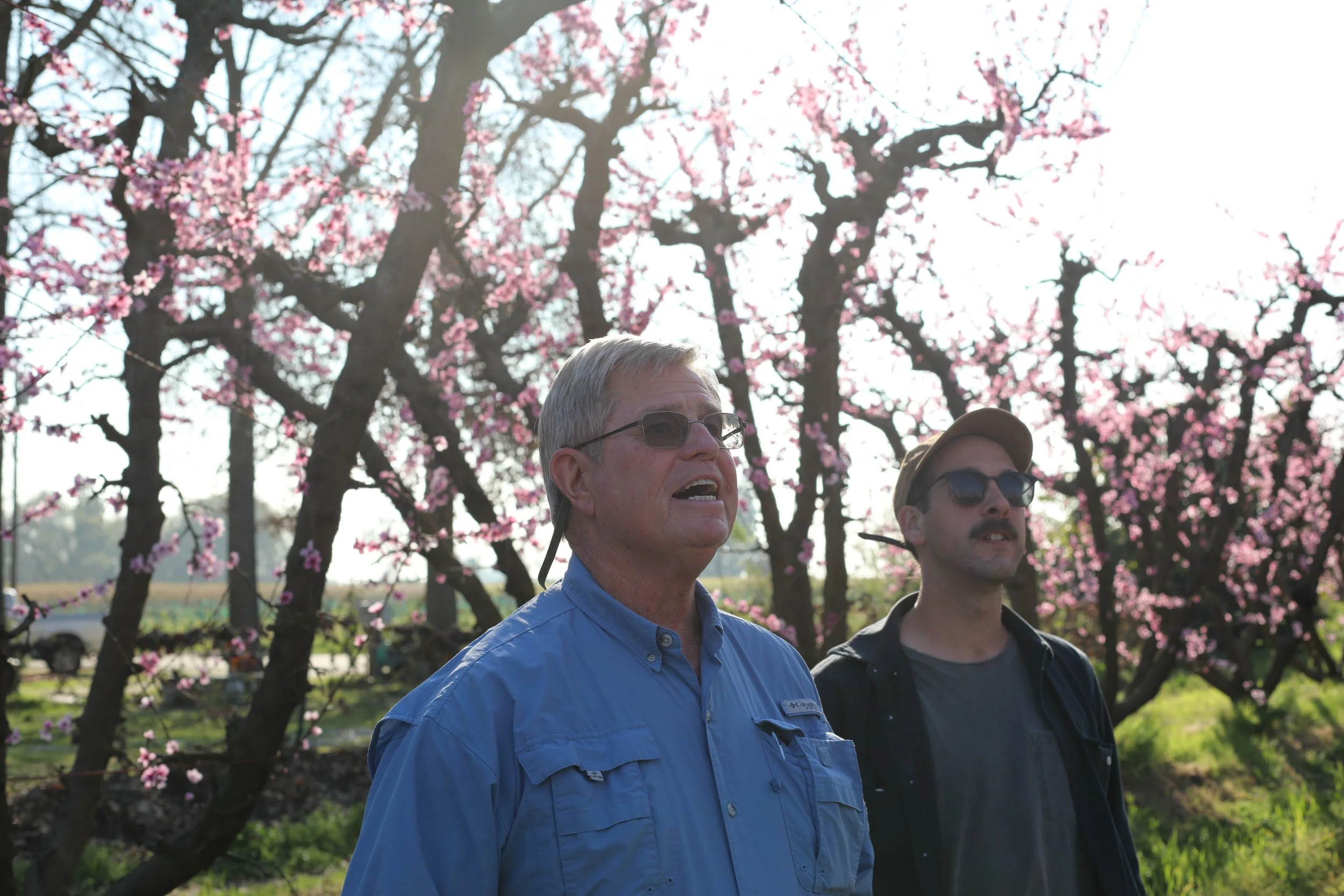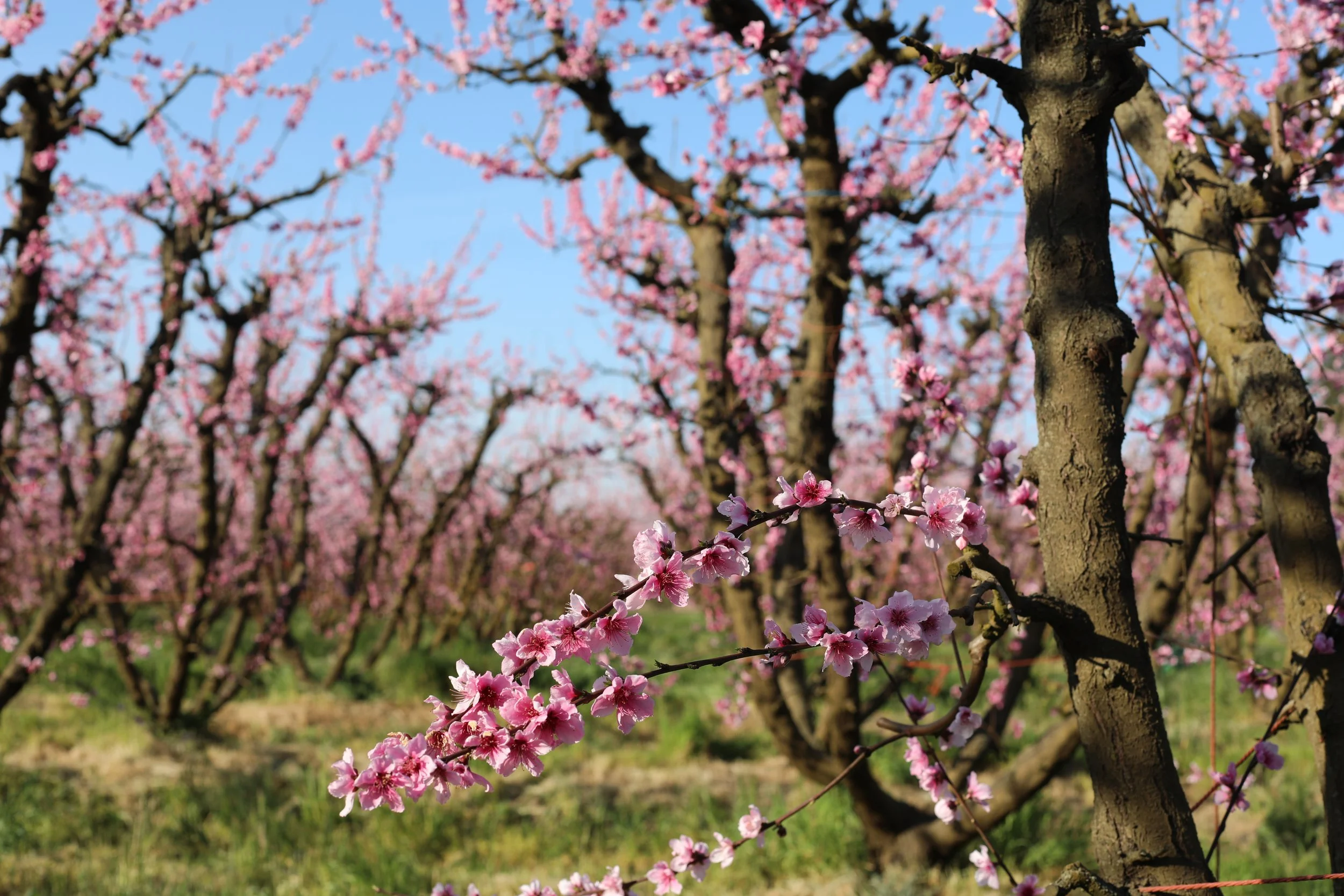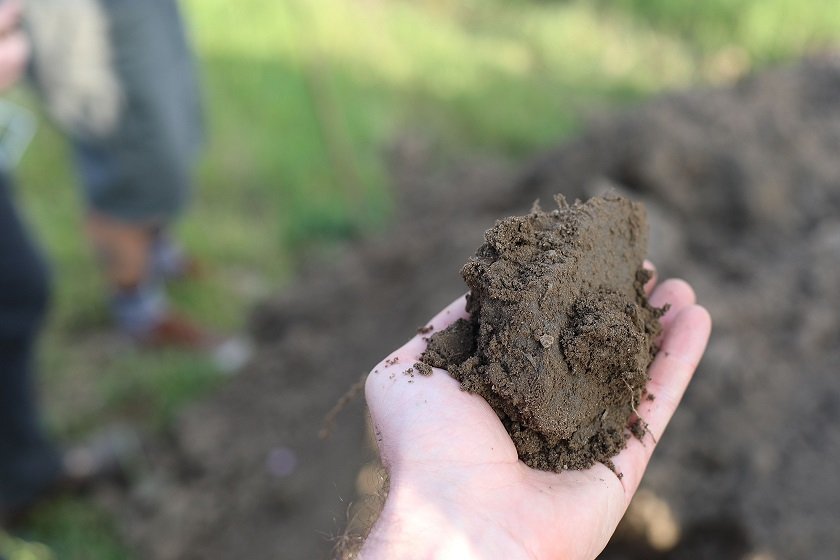FARM TOUR 2022: HOMEGROWN ORGANIC AND VERN PETERSON’S STONE FRUIT
As we made our way to visit the folks at Homegrown, we noted the variability of each operation based on its proximity to the King’s River. Vern Peterson’s plot backs right up the river (which although incredibly low, creates a stable water table), and we learned that his well was only 15ft deep.
There we found an oasis: a running stream for grandchildren to explore, golden hues of light passing through the giant magnolia that shields his home, amidst a few hundred acres of flowering trees. It's hard to explain in words how alive his land felt – there wasn’t an inch of exposed soil in sight, a bona fide ecosystem in which the greens themselves were greener, exuding a palpable energy as they swayed in the breeze.
Vernon Peterson and Jarod, Earl's Organic Buyer
Vern is pushing the envelope of organic farming as the main stone fruit grower for Homegrown Organic Farms, our employee-owned partner that provides blueberries, citrus, stone fruit, grapes, and more. We met with Vern himself, CEO Scott Mabs, our sales rep Ryan Fronke, and a few of the marketing directors, where we spoke about the industry and its challenges (the cost peach trays went up over 70% since last year... with costs going up, will customers make choices to buy conventional in certain arenas?). We spoke about our relationship and its future: “Earl’s is part of the 5% of shoppers that buys by varietal,” Scott shared, “you provide an integral piece by building value on a piece of fruit, of sharing the story behind it.” And that’s a mission we intend to continue across the board, even as consumer desires fluctuate.
His is the first Regenerative Organic Certified stone fruit farm in the country: a new certification affiliated with the Rodale Institute, inspected by the CCOF, created through a collaboration of scientists, policy makers, and farmers. It’s a system that requires Organic as the baseline and uses measurable data to ensure the three pillars of soil health, animal welfare, and social fairness. That latter aspect was a particularly inspiring element of Vern’s operation: each of his full-time employees receive a living wage and the full gamut of benefits, but it goes further than that.
Over the distant hum of cars and chirping birds he explained his participation in the Equitable Food Initiative (EFI), a certification that honors the workers producing our food. Forty hours of bi-lingual meetings between field and pack shed workers, management, and ownership created a culture that brought those oft-unheard voices into the fold. From such quick fixes as giving every worker a whistle for safety around tractors, to building an environment of increased engagement and employee retention. Breaking down those walls to help everyone understand the full picture, and work to accomplish their shared goal. Overall, the feeling was one of respect: they spoke of their drive to highlight farm workers as skilled professionals and honoring the artistry in their work: from finesse in thinning to eyeing a perfectly ripe peach with a speed most of us couldn’t dream to match.
As we began to walk through part of his over-300 acres, Vern explained some of those skills. While there are manifold bio-chemical complexities behind a successful operation, he offered us the simple answer for how to thin: “Big puppies make big dogs.” Much of farming is an intuitive act in tandem with nature – he explained that he felt when it’d be too cold for the trees – and once the fruit is out of its jacket, it only takes a few hours at 31F to take your entire crop. After the damage is done, “it doesn’t take a degree from Stanford to tell you; the buds will be green or black”. We each inspected the tiny buds in the flowers’ centers, novice eyes searching for signs of frost damage.
Letting the petals fall to the ground, that soil health aspect was impossible to ignore; in contrast to those barren groves carpeting the Valley, he pointed out over 12 species of weeds. There we learned a few more aspects of his orchard management, which he tries to base on the symbiotic relationships found in nature: letting the foxtail grow provides a home for thrips, a common culprit for fruit defects. He showed us the native bees that are cold resistant, and the hail nets that can protect the crop in the event of storms after the petals fall. (Not to mention the exploding boom of his hail cannon, which went off without warning and sent a few of us skyward. The idea is that the intensity of sound breaks up a brewing storm – he wasn’t convinced it works but appreciates the novelty anyway).
He’ll plant new cover crops into those existing weeds to add further diversity, where each plant provides benefit. He’s also reduced the size of his furrows to decrease tillage and sequester more carbon. All with successful results: Vern is certain that the parts of his farm with the highest organic matter in the soil have the best fruit. With 1.8% organic matter, he expects to see over 2,400 boxes per acre.
Rich soil sample
On the way out, our conversations inevitably drifted back to water: he feels confident in the location of his farm, boasting a stable water table against the King’s River and the perfect buttery soil for stone fruit. But with 20 years of organic farming under his belt, he was adamant that it’s necessary to do better. “As farmers, we have to build our own future.” In this case, innovation looks like maintaining a living mulch (green cover crops absorb water where bare earth will create runoff), as well as a large hole in the ground for water to soak back in. Vern maintains a soft enthusiasm that’s hard to resist... As we stood around in that web of life, with vibrant colors filling the senses, you could feel it in the space, and see the future in his grandchildren playing on the property.







